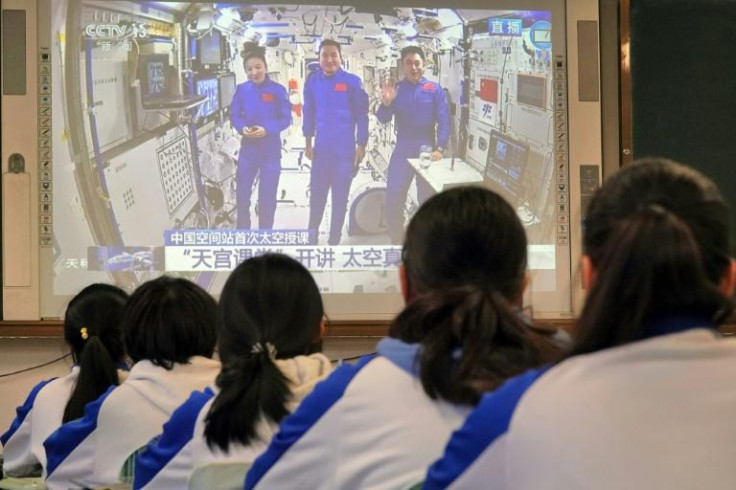Chinese astronauts return safely to Earth after six months in space
The Shenzhou 13 crew spent exactly 183 days in orbit.
A group of Chinese astronauts returned safely to Earth last week after spending six months on board Tiangong space station. The crew had taken off from the Jiuquan Satellite Launch Centre in the Gobi Desert in October last year.
The Shenzhou 13 spacecraft carrying three astronauts landed in northern China's Inner Mongolia Autonomous Region at 9:56 AM local time on Saturday morning. This is China's longest crewed mission so far.
The three astronauts – Wang Yaping, Zhai Zhigang and Ye Guanfu- spent exactly 183 days aboard the unfinished space station. Yaping even became the first Chinese woman to visit the Tianhe core module of the space station. She had also conducted a spacewalk during her time there.
The moment Shenzhou13 crewed spacecraft touched down. Three astronauts are getting out from the capsule now after their 6 month mission in Tiangong Space Station (CSS). LIVE coverage ongoing: https://t.co/xBAxsQXxkp pic.twitter.com/KkJKv26Gqk
— CNSA Watcher (@CNSAWatcher) April 16, 2022
The trio carried out a total of two spacewalks, held two live lectures for students watching from Earth and conducted various tests.
China has so far sent 11 missions to help complete the unfinished space station and the Shenzhou 13 was a part of one of those missions. The Shenzhou 14 crew will leave for the space station in June, according to a report in Space.com
China plans to have the space station operational within 2022. The Tiangong space station is expected to operate for at least 10 years once is becomes operational. The Chinese space station will have three modules, of which one has already been launched.
The other elements of the station will be launched over the course of the next few years. The space station will be located in low Earth orbit between 340 and 450 km above the surface, while the ISS hovers at an altitude of around 400 km.
China is the third country which has been able to launch an astronaut into space on its own after the former Soviet Union and the United States.
The country is not involved in the International Space Station as the US had barred China in 2011 from being a part of it citing concerns about "national security."
Some countries that have been able to send astronauts to the ISS include Canada, Brazil, the U.K., the Netherlands, Germany, Belgium, South Korea, Malaysia and Japan.

© Copyright IBTimes 2025. All rights reserved.






















